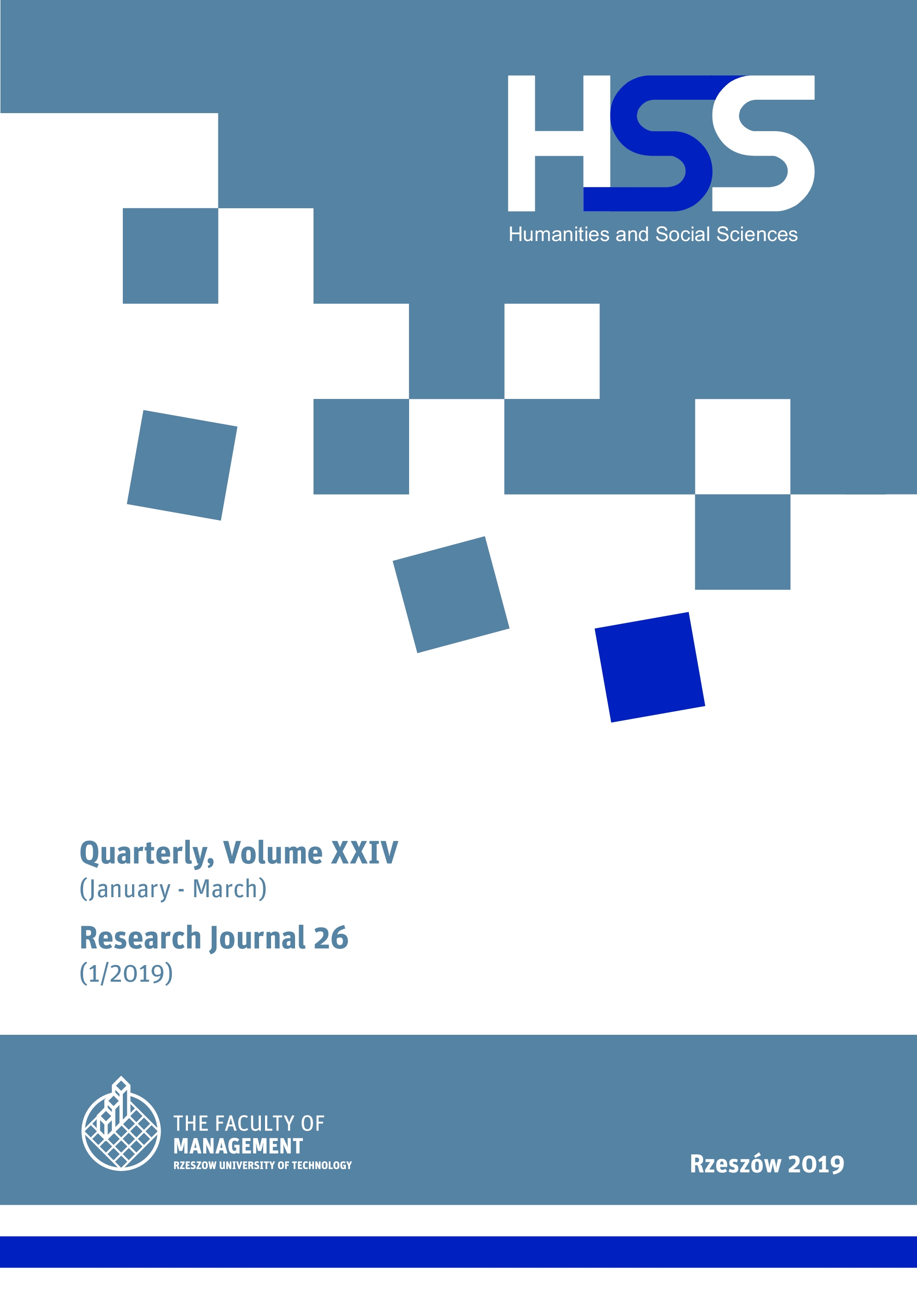Abstrakt
The aim of the article is to present and evaluate the attitude of the People's Republic of China towards the annexation of Crimea by the Russian Federation in the context of attachment to the foreign policy principles of the Middle Kingdom. The introduction shows Beijing's approach to the Five Principles of Peaceful Coexistence that are China's foreign policy doctrine. In the following parts was presented the reaction of the Chinese authorities to the annexation of Crimea by Russia and the most important circumstances conditioning it. The analysis was intended to answer the question whether Beijing's attitude during the Crimea crisis was a manifestation of embezzlement with the basic principles of the PRC's foreign policy? The answer to this question is positive. By annexing Crimea, Russia broke all the Five Principles of Peaceful Coexistence. Despite this, Pekin did not criticize it. On the contrary, it tried to justify Moscow's actions. During the crisis, Beijing wanted to achieve the greatest benefits and behaved according to a pragmatic approach, which is characteristic of the contemporary PRC’s foreign policy. This confirmed that the Five Principles of Peaceful Coexistence are treated instrumentally by the Chinese authorities. When important circumstances speak for it, they are ready to dissent from these principles. This negatively affects the sincerity of Beijing's intentions on the international forum, and raises the question of its policy in the future, after China reaches a dominant position in the world.
Bibliografia
Arduino, A. (2017). China’s Energy Interests in Central Asia and Russia: Symbiotic distrust and striking a balance between cooperation and confrontation [In:] Wu F., Zhang H., eds., China’s Global Quest for Resources. Energy, food and water. London–New York: Routledge, p. 119–137.
Bitzinger, R.A. (2015). China’s military buildup: regional repercussions [In:] Li, M., Kemburi K.M., eds., China’s Power and Asian Security. London-New York: Routledge, p. 42–61.
Black, J.L. (2015). The Russian Presidency of Dmitry Medvedev, 2008–2012. The next step forward or merely a time out? London–New York: Routledge.
Chan, G. (2017). China and global governance: evolving approaches [In:] Boon H.T., ed., Chinese Foreign Policy Under Xi. London–New York: Routledge, p. 161–173.
Chen, Y. (2016). Philosophy, identity, and role theory with “Chinese characteristics” [In:] Harnisch S., Bersick S., Gottwald J-C., eds., China’s International Roles. London–New York: Routledge, p. 77–94.
Chenoy, A.M., Kumar R. (2017). Re-emerging Russia. Structures, Institutions and Processes. New York: Palgrave Macmillan.
Copper, J.F. (2016). China’s Foreign Aid and Investment Diplomacy. Vol. III. Strategy Beyond Asia and Challenges to the United States and the International Order. New York: Palgrave Macmillan.
Donaldson, R.H., Nogee, J.L., Nadkarni V. (2015). The Foreign Policy of Russia. Changing Systems, Enduring Interests. Fifth Edition. London–New York: Routledge.
Duggan, N. (2016). China’s Changing Role in its all-weather friendship with Africa [In:] Harnisch S., Bersick S., Gottwald J.C., eds., China’s International Roles, London-New York: Routledge, p. 207–225.
Fernandes, S. (2014). Putin’s Foreign Policy towards Europe: Evolving Trends of an (Un)Avoidable Relationship [In:] Kanet R.E., Piet R., eds., Shifting Priorities in Russia’s Foreign and Security Policy. London-New York: Routledge, p. 13–34.
Harnisch, S. (2016). China’s historical self and its international role [In:] Harnisch S., Bersick S., Gottwald J-C., eds., China’s International Roles. London–New York: Routledge, p. 38–58.
Higgins, A. (2017). China and Russia Hold First Joint Naval Drill in the Baltic Sea, 25 July [Access: 22.07.2018]. Access on the internet: https://www.nytimes.com/2017/07/25/world/europe/china-russia-baltic-navy-exercises.html.
Junbo, J., Zhimin, Ch. (2016). China and the EU in the UN [In:] Wang J., Song W., eds., China, the European Union, and the International Politics of Global Governance. New York: Palgrave Macmillan, p. 75–94.
Kai, J. (2017). Rising China in a Changing World. Power Transition and Global Leadership. New York: Palgrave Macmillan.
Kiezkowa, A. (2016). Chinese regionalism: balancing and constraint in the Shanghai Cooperation Organisation [In:] Ping J.H., McCormick B., eds., China’s Strategic Priorities. London–New York: Routledge, p. 129–147.
Lanteigne, M. (2016). Chinese Foreign Policy. An Introduction. Third Edition. London–New York: Routledge.
Leichtova, M. (2016). Misunderstanding Russia. Russian Foreign Policy and the West. London-New York: Routledge.
Lin, J., Singer, P.W. (2014). The Bear And Dragon Goes To Sea Again: Russian And Chinese Navies’ Joint Sea Drill 2014, 28 May [Access: 22.07.2018]. Access on the internet: https://www.popsci.com/blog-network/eastern-arsenal/bear-and-dragon-goes-sea-again-russian-and-chinese-navies%E2%80%99-joint-sea
Macaskill, E. (2014). Russian troops removing ID markings ‘gross violation’, “The Guardian” 6 March [Access: 22.07.2018]. Access on the internet: https://www.theguardian.com/news/defence-and-security-blog/2014/mar/06/ukraine-gross-violation-russian-troops.
MacDonald, A. (2016). Access, Assurance and Acceptance [In:] Cao H., Paltiel J., eds., Facing China as a New Global Superpower. Domestic and International Dynamics from a Multidisciplinary Angle. Singapore: Springer, p. 171–195.
Nathan, A.J. Principles of China’s Foreign Policy [Access: 20.07.2018]. access on the internet: http://afe.easia.columbia.edu/special/china_1950_forpol_principles.htm
Perovic, J. (2009). Introduction: Russian energy power, domestic and international dimensions [In:] Perovic J., Orttung R.W., Wenger A., eds., Russian Energy Power and International Relations. London–New York: Routledge, p. 1–20.
Reuters. (2014). China urges restraint in Ukraine, avoids comment on Crimea vote, 17 March [Access: 22.07.2018]. Access on the internet: https://www.ndtv.com/world-news/china-urges-restraint-in-ukraine-avoids-comment-on-crimea-vote-554180
Snetkov, A. (2017). Russia’s Security Policy under Putin. A critical Perspective, London-New York: Routledge.
Tharoor, I. (2015). Don’t forget how the Soviet Union saved the world from Hitler. “The Washington Post” 8 May [Access: 20.07.2018]. Access on the internet: https://www.washingtonpost.com/news/worldviews/wp/2015/05/08/dont-forget-how-the-soviet-union-saved-the-world-from-hitler/?utm_term=.23f58789109b
Wan, M. (2016). The Asian Infrastructure Investment Bank. The Construction of Power and the Struggle for the East Asian International Order. New York: Palgrave Macmillan.
Zhou, L. (2017). Chinas role in Syria’s endless civil war. “South China Morning Post” 7 April [Access: 20.07.2018]. Acces on the internet: http://www.scmp.com/news/china/diplomacy-defence/article/2085779/backgrounder-chinas-role-syrias-endless-civil-war


